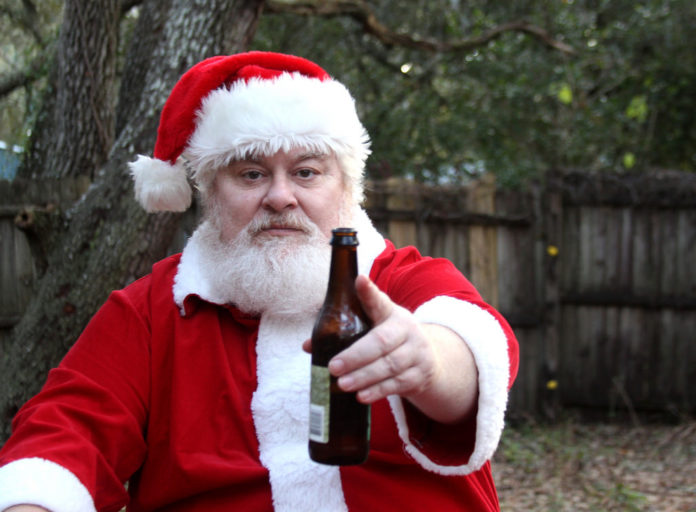He is fat and happy. But centuries of sherry-drinking, munching on mince pies, and gruelling night shifts may have taken a toll on the health of Santa Claus, suspects England’s Royal College of GPs. In statement, RCGP advised Santa to go easy on the sherry this season and share Rudolf’s carrots instead.
These are some of the health issues RCGP identified in Santa:

- Obesity: With every house leaving carrots for his reindeer and mince pies and cookies for him, it is likely Santa’s BMI is exceptionally high. Obesity can lead to numerous health problems, such as hypertension, diabetes, fatty liver disease, and cancer.
- Gout: as a result of his waistline, unhealthy diet, and alcohol intake, it’s also possible that Santa Claus has developed gout – a painful joint condition caused by the build-up of uric acid in the blood. This could lead to permanent joint damage, kidney stones, or small lumps of uric acid crystals under the skin. That will make climbing on roofs very painful!
- Deep vein thrombosis (DVT): Santa Claus is known for his tight black boots to help him combat the snow, but with all his long haul travel they could be damaging his blood vessels – although the activity throughout his journey will help reduce his risk a little. Not only is DVT painful, but it can also cause a pulmonary embolism if left untreated.
- Alcoholism: having a tipple of sherry at every house around the world in one night is a serious case of binge-drinking, which we know is incredibly dangerous. But with Santa, we’re concerned that over the years he’s likely developed a significant addiction. If left untreated, this could lead to immune system dysfunction, cirrhosis of the liver, pancreatitis or brain damage, not to mention bad skin and strong body odour.
- Mental health: it is not known if Santa has a companion at home, so he could be at risk of feeling lonely. Loneliness and social isolation can be just as bad for his health and wellbeing as having a chronic condition and it is unlikely there are many community groups he could join in the North Pole. However, his community of elves may be better companions than we appreciate.
- Work stress: Christmas is obviously a busy time for Santa, and the pressure on him each year is immense. His shift pattern and crossing multiple time zones also means he exceeds the eight-hour working day. Stress is known to cause lots of health problems, most likely headaches, sleep problems, and potentially cardiovascular issues.
- Heatstroke: Santa Claus is used to the cold climate in the North Pole, so might struggle, especially in his furry coat, when visiting the likes of Barbados and South Africa. Heatstroke can be serious and put a strain on vital organs.
- Sleep deprivation: with the biggest night of the year to prepare for, it’s unlikely that Santa gets enough sleep in the run-up to Christmas – and certainly not during his overnight trip around the world. Not getting enough sleep can lower immunity, fertility, and make it harder to shift excess weight.
- Cold and flu: Santa is constantly exposed to cold and flu, and not just from flying through the night in an open sleigh, visiting all the different houses. Children visiting him in his shopping centre grottos are likely to carry viruses and put him at risk of glandular fever.
- Lyme disease: Living with reindeer puts Santa at risk of contracting Lyme Disease – a potentially serious condition caused by ticks embedding themselves under the skin. If not caught early, he could find himself with painful joints, paralysis of facial muscles, or inflammation of the membranes surrounding the brain and spinal cord.
Professor Helen Stokes-Lampard, Chair of the Royal College of GPs, said: “Santa is almost certainly living with multiple morbidities, which, if left untreated, can become increasingly distressing and debilitating. If Mr Claus was a patient at my practice, I would be encouraging him to adopt a vastly healthier diet and take more exercise in the New Year. I’d also be keen to address his binge drinking; something which many people – perhaps even unknowingly – tend to do while celebrating Christmas.”


